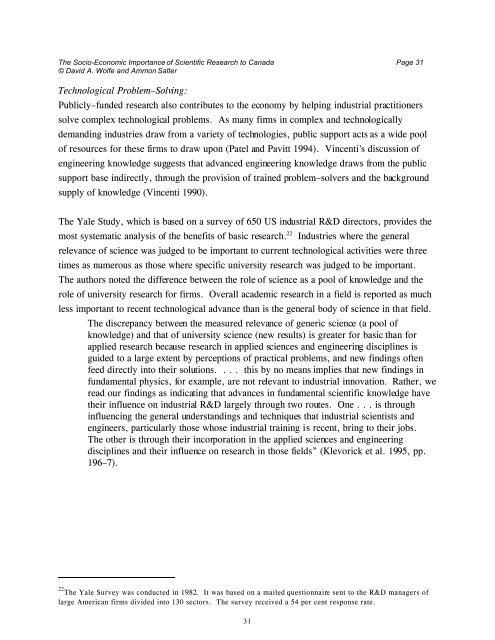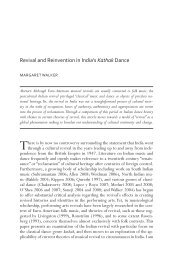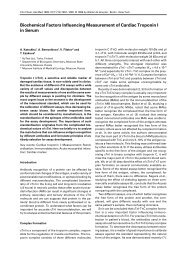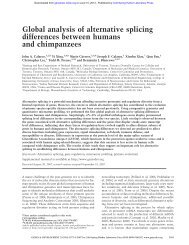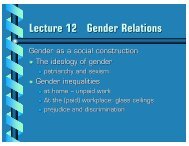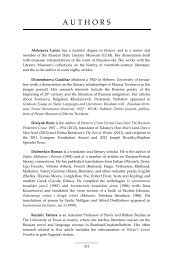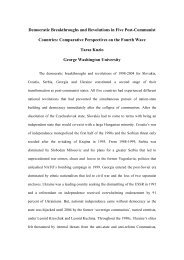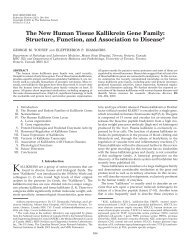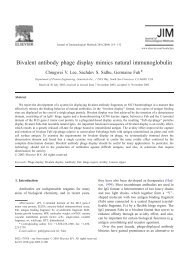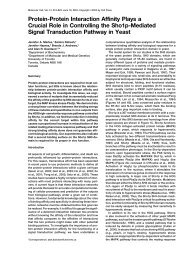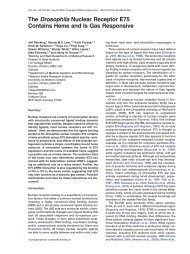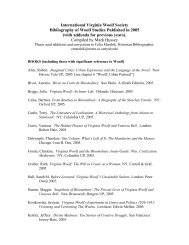The Socio-Economic Importance of Scientific Research To Canada
The Socio-Economic Importance of Scientific Research To Canada
The Socio-Economic Importance of Scientific Research To Canada
Create successful ePaper yourself
Turn your PDF publications into a flip-book with our unique Google optimized e-Paper software.
<strong>The</strong> <strong>Socio</strong>-<strong>Economic</strong> <strong>Importance</strong> <strong>of</strong> <strong>Scientific</strong> <strong>Research</strong> to <strong>Canada</strong> Page 31© David A. Wolfe and Ammon SalterTechnological Problem–Solving:Publicly–funded research also contributes to the economy by helping industrial practitionerssolve complex technological problems. As many firms in complex and technologicallydemanding industries draw from a variety <strong>of</strong> technologies, public support acts as a wide pool<strong>of</strong> resources for these firms to draw upon (Patel and Pavitt 1994). Vincenti's discussion <strong>of</strong>engineering knowledge suggests that advanced engineering knowledge draws from the publicsupport base indirectly, through the provision <strong>of</strong> trained problem–solvers and the backgroundsupply <strong>of</strong> knowledge (Vincenti 1990).<strong>The</strong> Yale Study, which is based on a survey <strong>of</strong> 650 US industrial R&D directors, provides themost systematic analysis <strong>of</strong> the benefits <strong>of</strong> basic research. 22Industries where the generalrelevance <strong>of</strong> science was judged to be important to current technological activities were threetimes as numerous as those where specific university research was judged to be important.<strong>The</strong> authors noted the difference between the role <strong>of</strong> science as a pool <strong>of</strong> knowledge and therole <strong>of</strong> university research for firms. Overall academic research in a field is reported as muchless important to recent technological advance than is the general body <strong>of</strong> science in that field.<strong>The</strong> discrepancy between the measured relevance <strong>of</strong> generic science (a pool <strong>of</strong>knowledge) and that <strong>of</strong> university science (new results) is greater for basic than forapplied research because research in applied sciences and engineering disciplines isguided to a large extent by perceptions <strong>of</strong> practical problems, and new findings <strong>of</strong>tenfeed directly into their solutions. . . . this by no means implies that new findings infundamental physics, for example, are not relevant to industrial innovation. Rather, weread our findings as indicating that advances in fundamental scientific knowledge havetheir influence on industrial R&D largely through two routes. One . . . is throughinfluencing the general understandings and techniques that industrial scientists andengineers, particularly those whose industrial training is recent, bring to their jobs.<strong>The</strong> other is through their incorporation in the applied sciences and engineeringdisciplines and their influence on research in those fields” (Klevorick et al. 1995, pp.196–7).22 <strong>The</strong> Yale Survey was conducted in 1982. It was based on a mailed questionnaire sent to the R&D managers <strong>of</strong>large American firms divided into 130 sectors. <strong>The</strong> survey received a 54 per cent response rate.31


